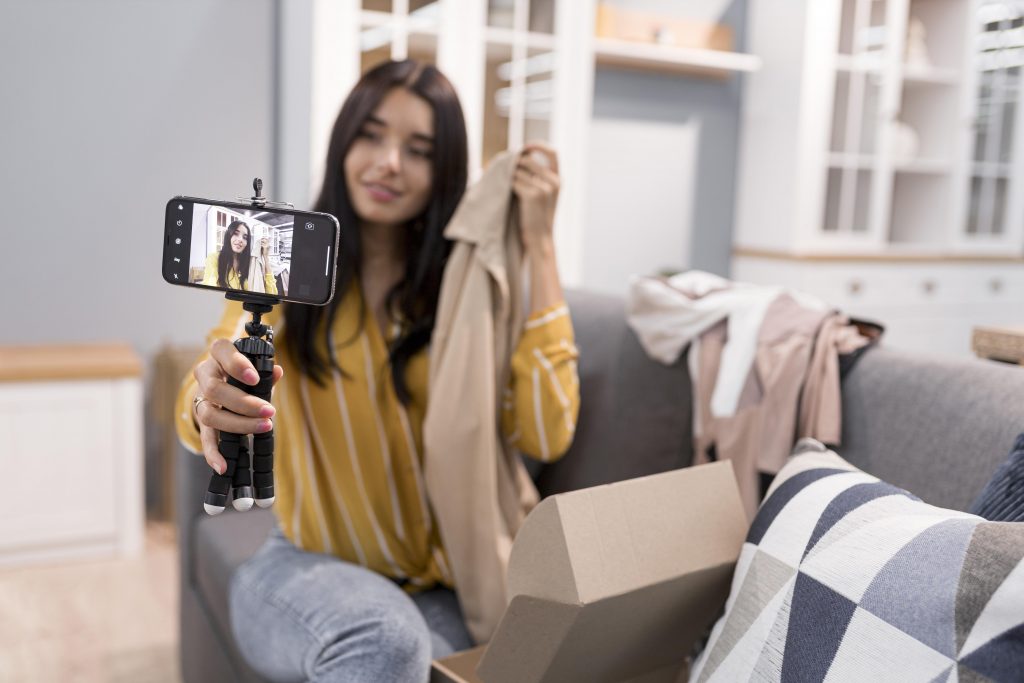
Influencers have flourished in the last decade. Mobile platforms such as Twitter, Instagram, Tik Tok, YouTube, Snap Chat have facilitated influencers to build parasocial relationships with their followers. A parasocial relationship is when one party is invested in the relationship while the other party stays happily unaware of their existence. Unlike traditional celebrities, who are seen as superior, influencers remind consumers and viewers of themselves.
Influencers offer frequent, and seemingly personal content, that helps deepen the one-sided relationship. We often equate our influencer to a friend or family member. So when we go to grab the pet food in the grocery aisle, we find ourselves grabbing the brand our influencer likes, even though it’s $5.00 more.
The concern is that there is usually a marketing strategy behind the influencer’s postings. And, there is a behaviour outcome the influencer is looking for (buy this pretty red dress because it is cheap and I, your influencer, approve of it). The motivation of postings goes beyond a desire to help, entertain and inspire and leans more heavily to making money and increasing followers. Some influencers have aligned themselves to organizations that do not always have high social, equitable, or sustainable standards. Sometimes influencers send hidden messages to society that aren’t sustainable (e.g., buy fast fashion).
Influencers are not all bad; however, as consumers and viewers of content, it is our responsibility to look past the allure of the likeability and attention to what we are being sold and what the hidden message is.
https://www.currentaffairs.org/2021/02/the-problem-with-influencers
Another issue with paranormal relationships is the fans have a tendency to believe their favourite influencers are not capable of manipulation or indirect harm, effectively putting them on a pedastal. I remember scrolling through Instagram once and seeing a photo of an influencer with questionable anatomic proportions; their waist was smaller than one of their thighs, with obvious warping in the background that indicates clear editing. Anyone who called this out in the comments was met with angry fans accusing the original commenter of being miserable, of being jealous, of being a hater. There is no such thing as fairly criticizing these influencers for actions; you’re either a fan or a hater with no in-between.
As a teacher, I hear students talk about their favourite influencers all the time. Many wear clothes, shoes, and other accessories only because someone popular on social media wears it, even if it means changing ones personality to match someone else’s. The challenge here is how kids will change their moral values for the acceptance of others. Some adults even do this and go to further lengths to belong to a group, like getting a specific tattoo one of their favourite influencers have it, and getting a tattoo is a big deal. The sad part is that these kids don’t understand that this celebrity doesn’t even know they exist, it’s a one way relationship. Do people follow influencers because they don’t value their worth? Is it too difficult to create a unique persona you should be proud of? What happens when an influencer is no longer influencing? This brings a lot of stress and anxiety in today’s young adolescents in their struggle to belong and be accepted.
Hi Miguel, I’ve been thinking about your first question “Do people follow influencers because they don’t value their worth?”. I think most people value their worth, they just don’t see how influencers are (or can be) manipulating them. Influencers appeal to people because they seemingly have the same values and/or passions as the people. Perhaps influencers expose people to information that is not accessible to them particularly with their real friendships. Jessica Mulroney is a fashion/fitness influencer whose career came to an abrupt halt after being accused of threatening Sasha Exeter, another influencer’s livelihood. Mulroney would post frequent photos of herself in new clothing, looking fabulous. Perhaps these posts fed the followers desire to see new fashion or understand what exercise Mulroney was doing to keep her size 2. They see her looking happy in perfect backdrops. What they don’t see is the true character of the women.
Hi Elizabeth, I enjoyed reading your post. The topic of influencers is interesting since they are always on display their whole life is like a TV show since that is how they make their livelihood. However, from the consumer perspective, you are correct that people tend to follow their trends. It is interesting that influencers are not always entertainers but start as regular people who gain a following, and suddenly their word is gospel. Mobile technology has opened the market whereby the entertainment industry no longer has the monopoly on being the driving force to set the trends. It is all about the number of followers and keeping them engaged, for example, Khaby Lame, the famous TikToker who is silent, has millions of followers and is a millionaire: https://techiegamers.com/khaby-lame-net-worth/
Mobile culture has afforded him the opportunity to become an influencer.
Yes the influencer’s life is like a T.V. show! I’d say more of a drama than a reality show. It’s astonishing the number of jobs that have emerged out of mobile technology. Who would have guessed a guy could become a millionaire from posting silent videos of himself; admittedly, the one video I saw was funny.
On a grimmer note, I was reading more about how influencers have capitalized on peoples’ losses and sadness. The BreonnaCon event was a convention that was centred around beauty, money and justice. Influencers were critisized for driving online store traffic and profiting from the event.
BreonnaCon: https://www.okayplayer.com/culture/breonnacon-organizers-under-fire-for-capitalizing-off-breonna-taylor-death.html